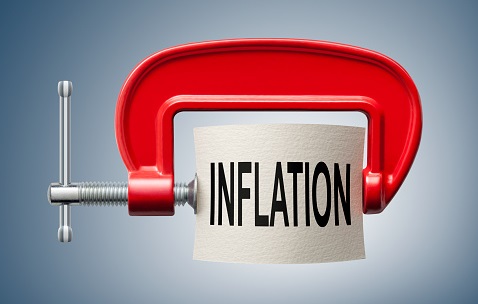The European session had a busy morning of EU and UK data, with the main focus remaining on inflation from the eurozone. Data showed that the consumer price inflation rate in the Euro Area decreased to 5.5 percent in June 2023.
Today’s headline number was down from 6.1 percent in the previous month and slightly below market expectations of 5.6 percent by the market, the preliminary estimate showed.
The rate hit its lowest level since January 2022, although it remained significantly above the European Central Bank’s target of 2.0 percent. On a monthly basis, consumer prices advanced 0.3 percent in June
Additionally, the core rate, which excludes volatile items such as food and energy, picked up to 5.4 percent, remaining close to a recent peak of 5.7 percent and supporting the view that policymakers are likely to continue raising rates in the upcoming months.
Energy prices tumbled 5.6 percent (vs -1.8 percent in May), while prices rose at a softer pace for both food, alcohol & tobacco (11.7 percent vs 12.5 percent) and non-energy industrial goods (5.5 percent vs 5.8 percent).
On the other hand, services inflation inside the eurozone picked up to 5.4 percent from 5.0 percent. On a monthly basis, consumer prices advanced 0.3 percent in June.
The seasonally adjusted unemployment rate in the Euro Area stood at a record low of 6.5% in May 2023, unchanged from the prior month and matching market forecasts.
Accordingly, latest figure represented a drop from last year’s rate of 6.7% and pointed to a tight labour market. The number of unemployed declined further by 57 thousand from a month earlier to 11.014 million, the lowest level since comparable records began in 1995.
The youth unemployment rate, measuring jobseekers under 25 years old, remained unchanged at a record low of 13.9% in May, the same level as in the prior month.
Amongst the largest Euro Area economies, the lowest jobless rate was recorded in Germany 2.9%, while the highest rates were registered in Spain 12.7%, Italy 7.6%, and France 7%.
Also, the UK posted Q1 final GDP +0.1% vs +0.1% q/q preliminary, according the ONS. Therefore, UK economy grew marginally in Q1 with the initial estimate being confirmed in this report.
With that said, storm clouds continue to loom amid high inflation and tighter credit/financial conditions as the BOE continues to raise interest rates.




